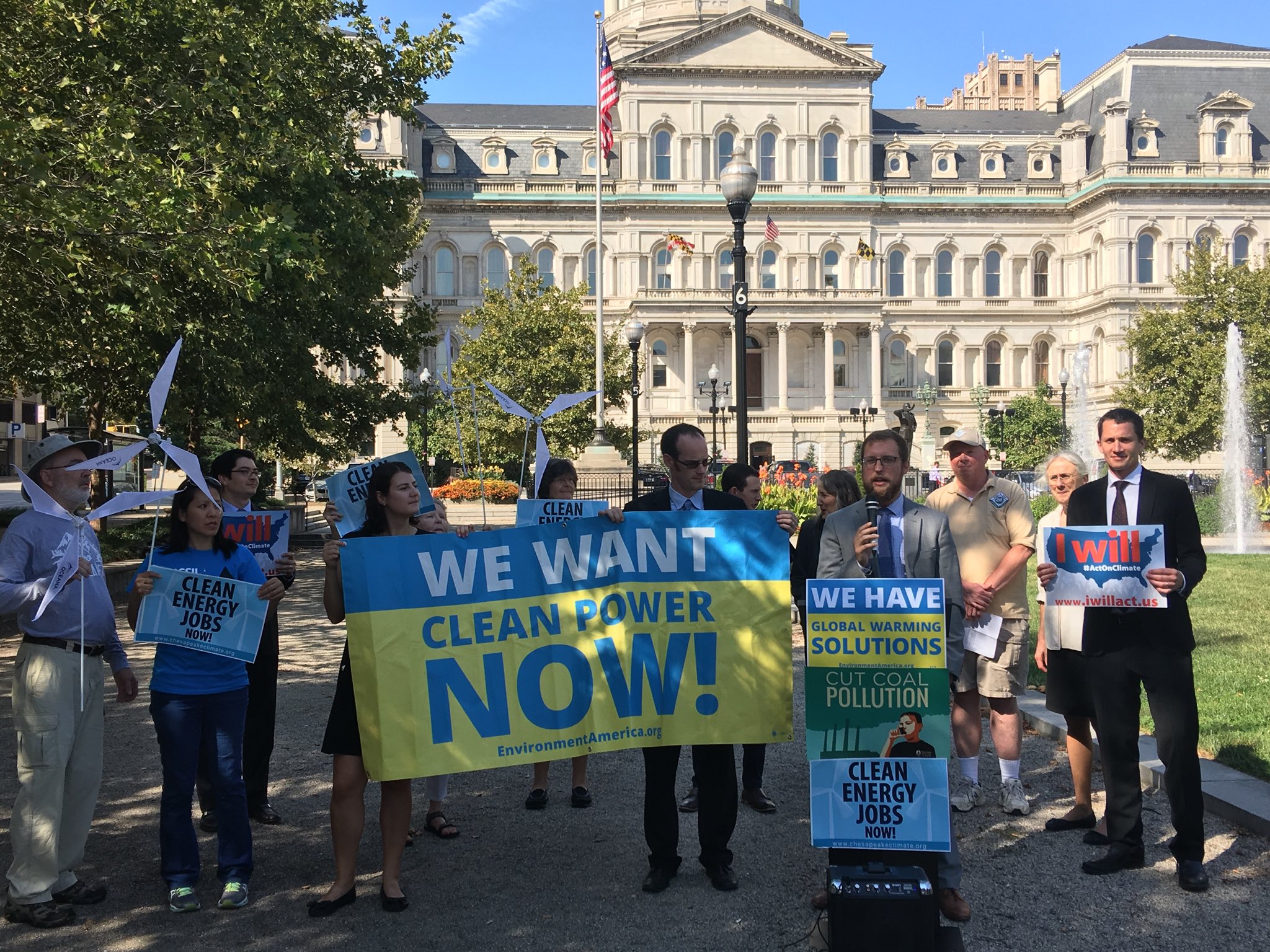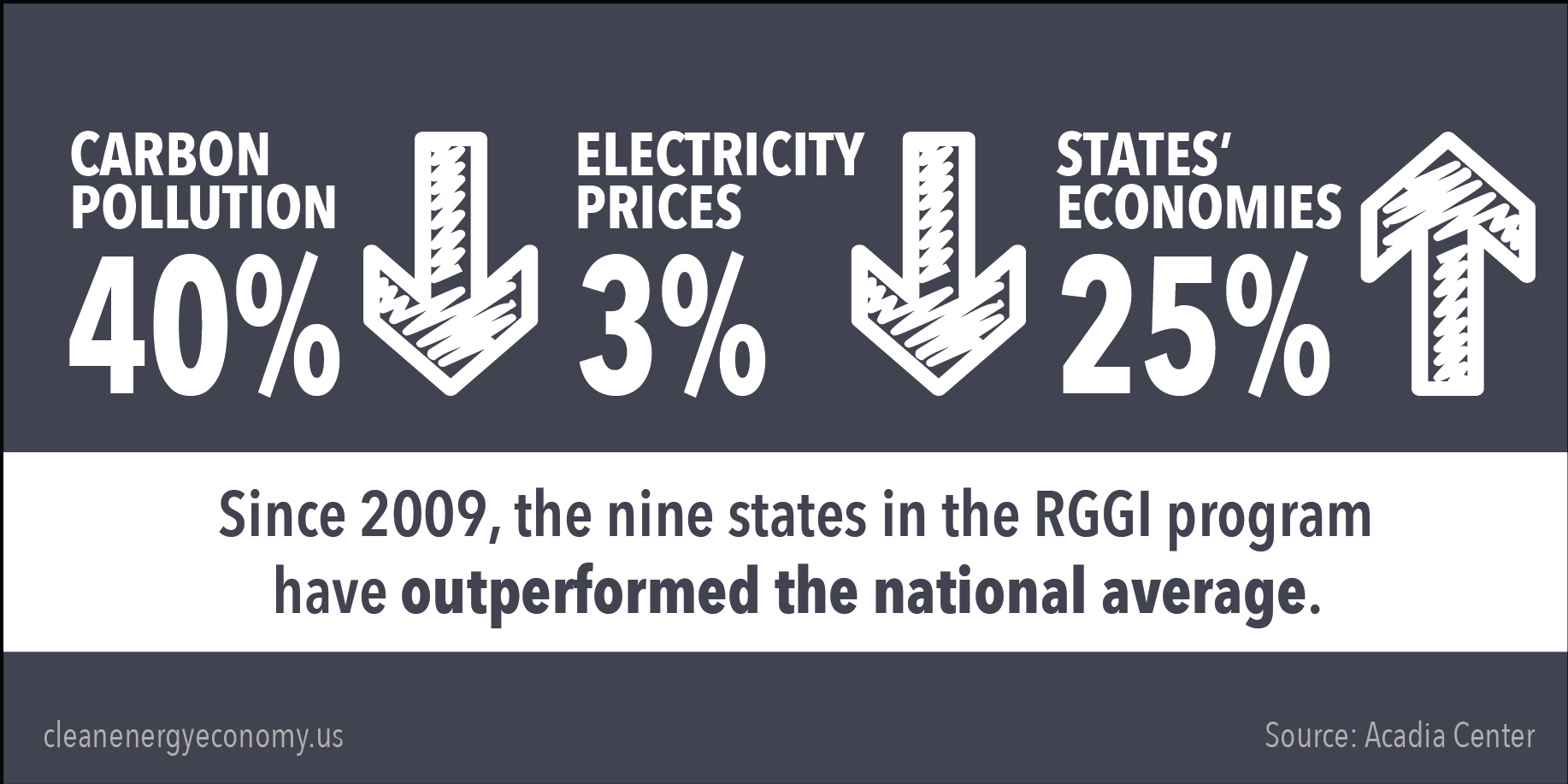
For almost 2 years the Sierra Club has been working in Maryland and other states in the Regional Greenhouse Gas Initiative (RGGI) to strengthen and accelerate the climate action program out through 2030. This summer, we received some positive news from the states when they announced a proposed update to RGGI that will result in an additional 30% reduction in dangerous climate pollution from power plants between 2020 and 2030.
RGGI is a regional cap and invest program that caps the amount of climate-disrupting carbon pollution allowed from large power plants, forces polluting power plants to pay for the amount of carbon they do emit, and reinvests that revenue back into communities to reduce electricity bills and deploy more energy efficiency and clean energy. The program was formed in the mid-2000s and has been a bona-fide success for the environment and the economy of the participating states, which happen to make up the world's 6th largest economy. RGGI states include Maryland, Delaware, New York, Connecticut, Rhode Island, Massachusetts, New Hampshire, Vermont, and Maine.

On Monday, advocates for a stronger RGGI gathered in front of Baltimore's City Hall - mere blocks from where the state officials met Monday afternoon to discuss the propsed update to the program - and spoke to the positives of the proposed changes and called on the need for better environmental justice fixes to RGGI. Media representatives and activists heard from Pace Energy and Climate Center, Chispa Maryland (a program of Maryalnd League of Conservation Voters), RGGI-beneficiary Dave Barrow, and Chesapeake Physicians for Social Responsibility. While advocates are supportive of the additional 30% reductions in pollution between 2020 and 2030, the following next steps were outlined:
- RGGI states should conduct a specific environmental justice analysis of the program to determine the pollution reduction and investment impacts for communities
- RGGI should move to include small-scale combustion-based power generators under its rules to ensure their pollution levels do not spike as a result of increased activity
- RGGI states should do more to ensure that the auction revenues are specifically targeted to communities that are overburdened and underserved
- Additional climate programs in each state must be advanced, including additional clean energy deployment and targeting more climate pollution reductions in the transportation sector
Coming up, the RGGI states will work to finalize their proposal and turn to each individual state's adoption process. Here in Maryland, that means that we will have to go through our standard regulatory update process, which will include an opportunity for the public to provide comment. Be on the lookout for additional information from us when it comes to next steps and opportunities for input. For now, let's celebrate action at the state level in the face of federal climate denial, and let's make sure our states create an even more equitable RGGI.
For more information, please see an online version of our press release here: https://www.sierraclub.org/press-releases/2017/09/marylanders-rally-behind-state-climate-leadership-thank-governors-for-cutting